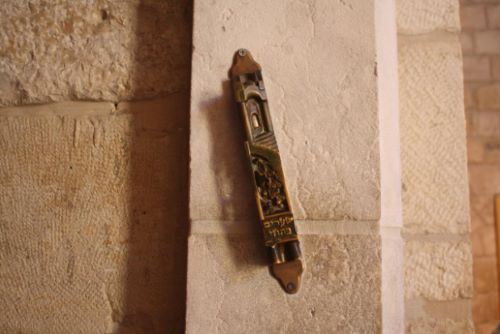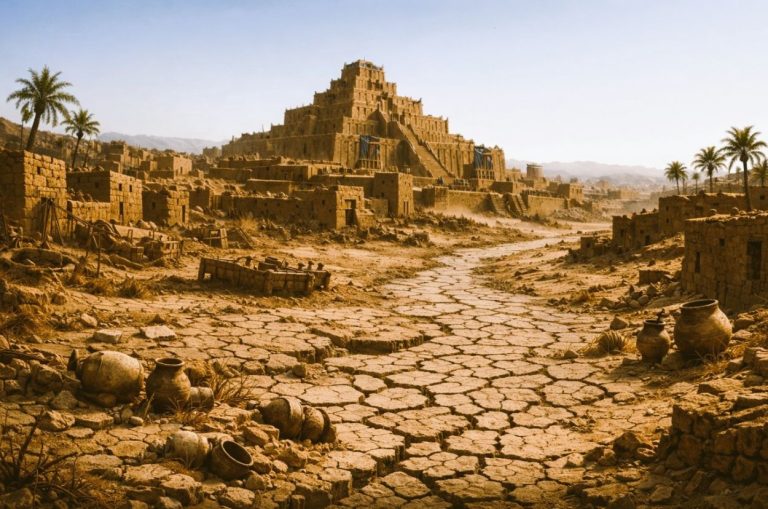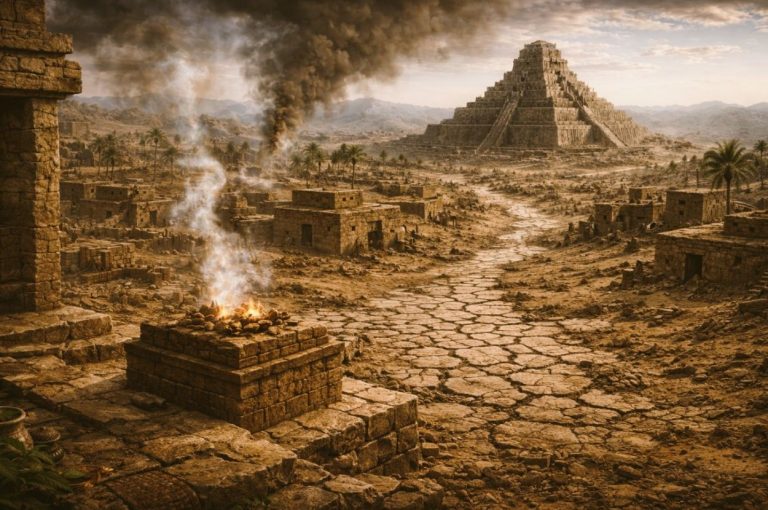

If you have ever visited Israel, you might have noticed something strange at the entrances of some of the houses. The strange thing looks like a little box – mostly located on the right side of the door. It is a Mezuzah.
To the unfamiliar eyes, the Mezuzah can appear like a poorly installed doorbell or some type of door decoration. Some types of Mezuzah come in fancy designs; others are available in silver. However, you shouldn’t get distracted by the fancy cases as these are only protective cases.
The real gem is inside of these protective cases. The importance of a Mezuzah is what lies inside of it. In itself, the Mezuzah is a small scroll. The scroll is hand-written by an expert scribe on a piece of parchment.
On the outside of the parchment, you will find Hebrew letters that refer to one of God’s Holy Names. The letters are also an acronym that refers to “Guardian of the Doors of Israel.” Here is the thing – when this scroll is properly affixed to a doorpost, it is meant to provide spiritual protection to the dwellers of the house.
You can think of the Mezuzah as a spiritual protective shield with a little bit of extra protection – in case anything goes wrong. This aspect indicates the spiritual significance of the Mezuzah. It perfectly explains why some people believe it is important to have a Mezuzah on every door of your house – especially the main door.
If this sounds inspiring enough to you, you might want to check out the wide range of mezuzah door guardians that you can choose from.
What is inside the Mezuzah?
Inside the Mezuzah, you will find the first two portions of the Shema, beginning with the verse that calls on Israelis and declares that God is their Lord and that He is one. In the first two portions of the Shema, the commands of God are about writing these words at the doorposts and the city gates. In Hebrew, the doorpost is referred to as “Mezuzah.”
Regarding the doorposts, these should have two side posts and a lintel above. Any such doorpost needs a Mezuzah. The few exceptions are small closets and anything like that. Also, the Mezuzah doesn’t need to go on the bathroom door, but other kinds of unconventional doors, such as hallways and offices, might need Mezuzahs.
If you are unsure about where to place a Mezuzah, you can ask a rabbi.
Can Non-Jews Hang the Mezuzah?
The prayers inside the Mezuzah are central to the Jewish faith, as they comprise their most important prayer – the Shema. Also, the Mezuzah is used in a ritualistic way because hanging the Mezuzah on the doors (excluding the bathroom door) is one of the Ten Commandments.
The Mezuzah is written by hand and cannot make a single mistake, which means that it isn’t a secular object. Out of respect for the Jewish faith and tradition, it would be culturally inappropriate for non-Jews to use a Mezuzah and hang it on their doors.
However, anyone who is not Jewish but wants to express their solidarity and admiration of the Jewish faith can potentially have the option of replacing the scroll with something of a similar but secular significance. Nonetheless, many Jews believe that the Mezuzah is exclusively for the Jewish people alone, and they see the Mezuzah as their identity. The essential spirit of the Mezuzah is oneness. So, if the Mezuzah inspires you, it might be good to learn more about the Jewish faith and interconnect with the human community with the spirit of oneness.


